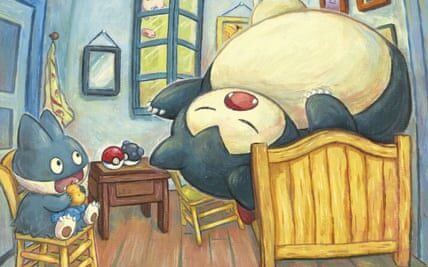Books for a better world: as chosen by Lenny Henry, Geri Halliwell-Horner, Andrew O’Hagan and others
Noughts & Crosses by Malorie Blackman
chosen by Lenny Henry, actor and comedian
I read this in my 40s and I wished I’d been able to borrow it from Dudley Library when I was a kid. Nothing I’ve read before or since has better put me in someone else’s shoes. It’s one of those books that expands your understanding of the world. Malorie gives us a reversed racial power structure, with dark-skinned Crosses holding power over light-skinned Noughts. Sephy is a Cross, the daughter of a powerful politician. She’s best friends with Callum, a Nought. Mixed-race friendships are almost forbidden, and ever since Sephy’s mum sacked Callum’s mum as her nanny, they’ve had to keep everything secret. The book makes us face our own prejudices, to think about empathy, racial inequality and its impact on us all. Her storytelling is utterly compelling, and she challenges the power dynamics between races. Why should the colour of your skin determine where you sit in society?
Lenny Henry’s Who Am I, Again? is published by Faber.
Silent Spring by Rachel Carson
chosen by Theresa May, politician
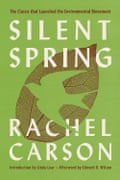
Published in 1962 by the American marine biologist and conservationist, this was the first book to explain the damaging effects of human-made pesticides on the natural world. It sparked a debate, first in the US, where it is said to have given rise to the environmental movement, and second in our vicarage in Oxfordshire, where it had a big impact on my mother and in turn on me. We had someone come to look at an infestation of red spider mites and when he got out the DDT (the key pesticide about which Carson wrote) my mother flatly refused to let him use it. I’m grateful for the effect the book had on her and for the way her views helped form my own on the need to protect the world around us.
Theresa May’s The Abuse of Power is published by Headline.
Wilding by Isabella Tree
chosen by Caitlin Moran, author
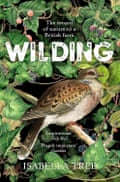
Given that I think the most crucial aspect of “a better world” is people not feeling suicidally depressed about the future, I want to recommend the only book about the environment that isn’t inherently dolorous. Tree and her husband inherit a failing estate in West Sussex, where over-farming has left the soil, to use the technical term, all fucked and not-wormy, and the whole place looking a bit bleh. And then, over two decades, they rewild it. The joy is that in each successive chapter, something new and amazing happens, as life returns to the land. A cloud of painted lady butterflies arrives. Then the nightingales. The dawn chorus explodes. Beavers reroute the stream. Storks – the first in the UK since the 1500s – nest on the roof. By the end, a dying farm has turned into Narnia. And it’s immediately inspiring: I copied just three of their rewilding techniques in my north London back garden – a pond, a log pile, letting an area self-seed – and now I have goldfinches, chaffinches, newts, frogs, woodpeckers and bats.
You can’t make the whole world a better place – but you can start with your garden. And once you’ve got one hopeful gardener, dragging bleary guests downstairs to experience the berserk joy of a dawn chorus, the world is, just fractionally, a better place.
Caitlin Moran’s What About Men? is published by Ebury.
Deaths of Despair and the Future of Capitalism by Anne Case and Angus Deaton
chosen by Jon Ronson, journalist and author
This is a serious, statistics-heavy book, but the numbers spell out something extraordinary. Which is that between 1999 and 2017, 600,000 mainly white Americans in midlife died of “despair” – by suicide or alcoholism or “accidental poisoning” (opioid overdoses). The reason, Case and Deaton argue, wasn’t so much poverty or inequality. Instead, they lay the blame on capitalism’s assault on “a way of life”. Blue-collar Americans used to take pride in working their way up in a company, going to the Christmas parties, fulfilling a role in an institution. But that’s been replaced by globalisation, automation and isolation. Loneliness causes pain and in 2016 there was, they say, a correlation between pain and voting for Donald Trump, so let’s hope the pain is subsiding. One small complaint: when the authors allow themselves to veer from the statistics into actual writing they do it beautifully, so I wish there was more of that. But this is a wildly important and revelatory book that promotes nuance and empathy.
Jon Ronson’s podcast Things Fell Apart is on BBC Sounds.

With the End in Mind: How to Live and Die Well by Kathryn Mannix
chosen by Caroline Lucas, politician
I love the irony that Mannix’s book about dying is one of the most life-affirming texts I’ve ever read. From my own experience of being with my father during his last days, much of the fear around death and dying is due to our own lack of knowledge and understanding of the process – something that would have surprised our grandmothers, for whom death was far more familiar and a natural part of life. But an over-medicalised approach to the end of life now means that death remains a mystery, and that many of us who would prefer to die in our homes surrounded by our loved ones die instead in emergency rooms and intensive care units. With kindness and gentle humour, Mannix – a palliative care doctor – demystifies the process. After reading her wise, compassionate book, when my mum was dying, I felt I could approach her last days with far greater confidence. As Mannix says, it’s time to talk about dying, and how to die well. And if we do, she reminds us, it will give us our best chance of living well, too.
Caroline Lucas’s Another England is published by Hutchinson Heinemann.
The Earth Transformed by Peter Frankopan
chosen by Sathnam Sanghera, journalist and author
This is a dazzling book in all sorts of ways, but it’s particularly fascinating for what it has to say about the impact of colonialism on the planet. European powers caused a huge amount of environmental destruction in the age of empire, and factoring this history into modern debates about conservation and preservation totally changes those conversations.
Sathnam Sanghera’s Empireland is published by Viking.
The Tunnel by Ernesto Sábato
chosen by Paul Lynch, novelist
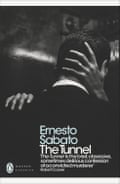
The revered Argentinian novelist began his career as a physicist at the Curie Institute in Paris but grew suspicious about the limits of rationality and quit to pursue the irrational in fiction. His classic 1948 novel, The Tunnel, is narrated by tormented artist Juan Pablo Castel, who begins a troubling affair with a woman called Maria. Castel is convinced she is sleeping with other men, but there is much he does not know, nor cannot know. And yet, through a series of rational deductions, he arrives at the decision to murder her. The Tunnel is a surgical strike against the folly of rational certainty that blindly serves our irrational beliefs. In similar fashion, we are now seeing the use of AI to generate terrorist targets for assassination in Gaza based on algorithms and probability, resulting in the maiming and death of innocent civilians. Sábato ends his novel with the remonstrations of Maria’s husband, a symbolic blind man, who calls Castel a fool.
Paul Lynch’s Prophet Song is published by Oneworld.
Not So Black and White by Kenan Malik
chosen by Sunjeev Sahota, novelist
This compendious book shepherds us from the Enlightenment through to Black Lives Matter, taking in the Haitian revolution, CLR James, modern multiculturalism and much more. In so doing, it gives a deep and lucid account of how we’ve ended up in a world whose political economy privileges notions of identity, and how such a world results in reactionary and conservative social justice debates that inevitably fail the weakest and most vulnerable. It’s a superb book, written in unflappable prose, that should be read by everyone who imagines themselves as being on the left.
Sunjeev Sahota’s The Spoiled Heart is published by Harvill Secker.
An Immense World by Ed Yong
chosen by Téa Obreht, novelist
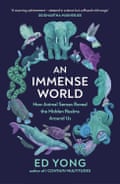
I recommend this book all the time, wholeheartedly, to everyone. It’s a fascinating, mind-altering exploration of animal senses and the various ways animals have evolved to experience their surroundings. Implicit in its construction is the idea that layers and layers of reality are simply inaccessible to humankind. The result is a project that provokes awe, which is fundamental to inviting both betterment and change. Anything that puts into perspective all the ways in which the myth of human exceptionalism fails to measure up to other extraordinary developments in nature is, I think, vital in this moment of ecological devastation and waning biodiversity.
Téa Obreht’s The Morningside is published by W&N.
The Strange Case of Dr Jekyll and Mr Hyde by Robert Louis Stevenson
chosen by Andrew O’Hagan, novelist
When starting out, I got a piece of advice from an editor that I’ve never forgotten. “People have a tendency to believe far too much in what they believe,” she said. “Why not give some airtime to the thing you don’t believe?” I still feel that it’s a radical statement about living as well as writing – too many of us are editorialists selling certainty. It seems to me that if you can’t be multifaceted as a writer then you’re in the wrong business. Ambivalence opens the way to true empathy: be a little less yourself and see what happens. The classic text in this regard is Stevenson’s masterpiece, a sad and brutal story in itself but such a true account of human nature I find it hard to think of the world without it. The tale has the character of Delphic utterance or ancient myth: nobody is simply one thing, and to make a fetish of our singularity is to miss half of who we are. If I were in charge, I’d issue free copies to all children and world leaders, hoping for a better world.
Andrew O’Hagan’s Caledonian Road is published by Faber.
Erewhon by Samuel Butler
chosen by David Runciman, academic
Erewhon is one of the weirdest and wildest books of the Victorian era, which is saying something. It imagines a hidden part of the world – loosely based on New Zealand – where people have decided to emancipate themselves from technology to stop it taking over and ruining their lives. Given that this was written in 1872, it’s pretty prophetic. Butler had read Darwin and he believed that natural evolution applied to machines as well – soon they would start communicating with each other, marrying and having children. Eventually humanity would be obsolete. Butler wants his readers to remember that they still have a choice – we built this technology and we can unbuild it. But it’s a war to the death: if we don’t destroy the machines, they will destroy us.
David Runciman’s The Handover is published by Profile.
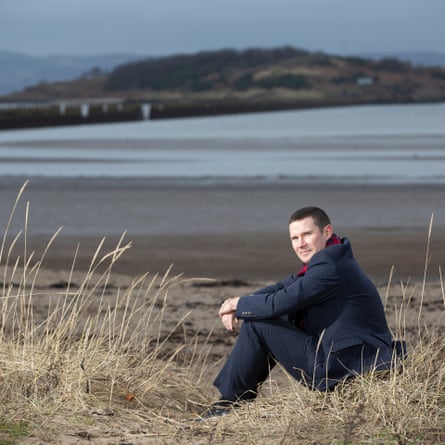
Under a White Sky by Elizabeth Kolbert
chosen by Gavin Francis, doctor and author
Kolbert’s concern for humanity is existential. How can we mitigate, redress and reverse the environmental damage we have inflicted, including 200 years of unregulated carbon dumping into the sky? As a species we need to cooperate now to get all that CO2 back into the ground. Her title refers to one proposal to counter global warming: aeroplane fuel could, in its exhaust, disseminate particulate chemical matter to partially reflect away the sun’s heat. Kolbert quotes the succinct opinion of climate scientist Andy Parker: “We live in a world where deliberately dimming the fucking sun might be less risky than not doing it.”
Gavin Francis’s Free for All: Why the NHS Is Worth Saving is published by Wellcome.
News from Nowhere by William Morris
chosen by Olivia Laing, author
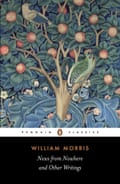
William Guest goes to bed in 19th-century Walthamstow, and when he wakes the next morning he finds himself in an unfamiliar London. He has slipped into a future England, a post-revolutionary utopia where money is unknown and the system of alienated labour has been abandoned for good. This isn’t a manual for a future society so much as an invitation to think about how human relations would change without the exploitative imperatives of capitalism. The artist and utopian socialist William Morris wanted to convey how beautiful and sensuous that future civilisation could be. It’s this quality of delight that makes News from Nowhere so powerful. Those of us who desire a better world are so often forced to take up defensive positions, fending off ecocide and the rise of the far right. But what world do we actually want to inhabit? Morris allows himself to envisage a new Eden. There’s no greater illustration of its changed priorities than when Guest realises Trafalgar Square is an orchard of apricot trees and Kensington a forest.
Olivia Laing’s The Garden Against Time is published by Picador.
Fearless by Jelena Dokic
chosen by Judy Murray, tennis coach
This book, by ex-world No 4 tennis player Jelena Dokic, is about reclaiming life when all feels lost. It’s about learning to reach out for help and healing. It’s about speaking up and the power of sharing our experiences. In the past Jelena has dealt with an eating disorder, horrendous parental abuse and a devastating relationship breakdown. She has faced her mental health demons head on to find stability and calm amid the carnage of her life. Throughout Fearless she shares many tough lessons to help others find their voices and the power to survive and thrive.
Judy Murray’s The Wild Card is published by Orion.
Memorial by Alice Oswald
chosen by Nandini Das, historian
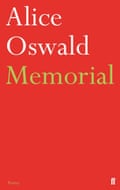
I remember opening Memorial for the first time, to its litany of the names of the dead in the Iliad. In Homer’s epic, many of those names are alien syllables that we may be forgiven for skimming over. It is the bright, the heroic and the tragic who claim our attention – Hector, Achilles, Patroclus. Oswald’s poem zooms in on those others, the ordinary Greeks and Trojans, the storyless casualties of war. There is little distinction between the two sides in her poem, and the cause of war, just or otherwise, hardly matters, but the attention to each dying man is a moment of flaring focus. There is Iphidamus, the “big ambitious boy” fleeing from his new bride to join someone else’s war; Coön, desperately dragging his dead brother by his “stiffened foot” to safety”; Diores who died “in a puddle of his own guts” and Pirous who “killed him and was killed”. Death is trite and mundane. It is easily achieved, predictably repeatable. Even as war and destruction in the name of innumerable supposedly just causes threatens to dull our senses, we need poems like Memorial to remind us of what is erased in the process – the stories unfinished, the lives half lived.
Nandini Das’s Courting India is published by Bloomsbury.
David Copperfield by Charles Dickens
chosen by Stephen Mangan, actor and children’s author
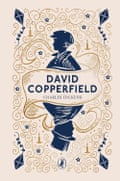
This is a book about a person making their way in the world and finding themselves. It’s a deeply serious romp, shot through with joy and pain, hilarity and wisdom. It’s an ode to human goodness. It reminds us that we live in a society, not just an economy; reminds us to resist the best efforts of politicians, newspapers and social media to turn us against one another; and reminds us of the importance of friendship, home, loyalty and love.
The Tao of Pooh by Benjamin Hoff
chosen by Anita Mangan, illustrator
While this life-affirming book was written four decades ago, its themes are hugely relevant today. Benjamin Hoff introduces the ancient philosophy of Taoism, drawing parallels with the beloved little bear from The Hundred Acre Wood. Taoism encourages effortless action, spontaneity, simplicity, compassion and humility – all Pooh principles. Hoff asks Pooh, “It’s a nice day – why aren’t you doing something?” “I am,” says Pooh, “I’m listening to the birds.” I came across this book in my early 20s. I’d recently lost my Mum to cancer, and was trying to work out what I wanted to do with my life. It helped me appreciate the joy in what I could offer just being me. In a world full of noise, soundbites and social pressures, particularly on young people, surely a message such as “the wise are who they are, they work with what they’ve got” is what we need to hear. Or, like Pooh, maybe birdsong?
Stephen Mangan’s The Day I Fell Down the Toilet, illustrated by Anita Mangan, is published by Scholastic.
Landbridge: Life in Fragments by Y-Dang Troeung
chosen by Kaliane Bradley, novelist
In 1980, Y-Dang Troeung and her family were designated among the last of 60,000 refugees from Khmer Rouge Cambodia to Pierre Trudeau’s Canada – commemorated by a newspaper photo of baby Y-Dang waving a little Canadian flag. Some 40-odd years later, Landbridge is Y-Dang’s attempt to grapple with this legacy: of being the picture-postcard image of Canada’s benevolence (and, by extension, refugee gratitude); of the conflict between her academic work on the refugee experience and the reality of living with the trauma of Pol Pot’s genocide; and even of her desire to write about it at all when her parents’ generation are so often mute on the subject. Landbridge will radically reshape your understanding of the power exchange between a host country and its immigrants. But it will also reassure you that it’s possible for a story about trauma and displacement to always be about love, and for love to be the centre of any life.
Kaliane Bradley’s The Ministry of Time is published by Sceptre.
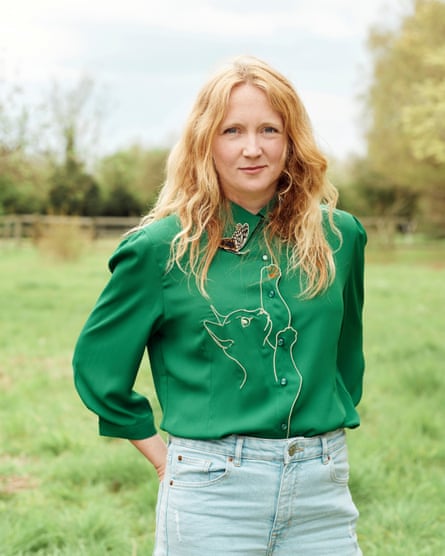
Disobedient Bodies by Emma Dabiri
chosen by Hollie McNish, poet
I love the way Dabiri writes. She delves into such important, dense and globally sprawling topics with the utmost intelligence, both academic and emotional, while still making me feel like I’ve just had my mind opened over a drink with a sweary mate in a bar. I’ve read a lot about body shaming, beauty, the pressures that women in particular, but all humans in general, face. Nothing else has tackled the issue with such depth of historic, social and economic inquiry. What’s more, few books on this topic have made me feel as though I have the means by which to break free and question the structures of shame, while simultaneously embracing the joy that rituals of beauty, embellishment and glamorous gossiping can also bring.
Hollie McNish’s Lobster is published by Fleet.
The Unaccountability Machine by Dan Davies
chosen by Francis Spufford, author
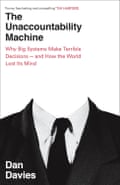
Oddly, the most hope-inducing, game-changing book I’ve read recently is neither literary nor political, but a work of management theory. The Unaccountability Machine is, in the first place, a lucid organisational explanation of many of the frustrations of modern life. But then it becomes a brilliant rehabilitation of the 1970s cyberneticist Stafford Beer, revealed in its pages not as a socialist romantic building Heath Robinson devices for Salvador Allende, but a profound if eccentric analyst of systems. Davies draws a picture of a world in which the narrow pursuit of shareholder value has stupefied us, and pointlessly cut us off from the range of good things that human organisations can in fact do, if we apply our collective intelligence to them. It’s the kind of book from which you look up to find the world suddenly more comprehensible. Also, it’s about 10 times funnier than any book about management has the right to be.
Francis Spufford’s Cahokia Jazz is published by Faber.
Michael Rosen’s Sad Book, illustrated by Quentin Blake
chosen by Manon Steffan Ros, novelist
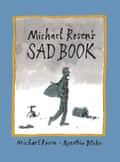
Whenever I’ve read this book to children, a respectful hush has fallen and all fidgeting ceases. Children feel an innate appreciation when they are entrusted with the difficult topics that we try to shield them from. Rosen’s directness, his refusal to dress up sadness, grief and anger in the shroud of euphemism or metaphor, makes this book feel revolutionary, edging on dangerous. Quentin Blake’s illustrations are similarly starkly striking.
It shows the connection between anger and sadness, a concept that isn’t always obvious, even to adults, yet once understood explains so much about a lot of the suffering in the world. More importantly, it teaches empathy – something that the world is desperately in need of. A sad book, yes, but undoubtedly one that makes the world a better, more empathetic place.
Manon Steffan Ros’s The Blue Book of Nebo is published by Firefly.
Soldier Sailor by Claire Kilroy
chosen by John Boyne, novelist
The greatest contribution a person can make to the world is to be a good parent and, to achieve that, one needs the support of family, friends and wider society. Claire Kilroy’s most recent novel is the most vivid account I’ve ever read of how difficult it is to cope with the demands of an infant. Through a prism of love and despair, Kilroy’s narrator illuminates how a baby can tear away at a woman’s sense of self, as her needs disintegrate in the face of her child’s interminable demands. Soldier Sailor has been shortlisted for this year’s Women’s prize for fiction but it’s men who should read it and recognise that if a woman chooses to devote herself to ensuring her child’s wellbeing, then someone needs to take care of her too.
We Want It All: An Anthology of Radical Trans Poetics, edited by Andrea Abi-Karam and Kay Gabriel
chosen by Andrew McMillan, poet and novelist
Books, alone, can’t make a better world. For that we need real economic investment in towns and cities, in education, in healthcare, in the arts. We need serious and intelligent and compassionate leaders. Books can be a form of witness, a form of documenting that striving towards a better world; at their best, perhaps, they are a crucible through which a new language might emerge, a new sense of who we are, of how we got here of how we might look towards different futures. One such book I return to again and again is We Want It All. In an era of rising hostility to the trans and broader queer communities, what better time to be reminded of the vital work of the 70 poets compiled within its pages?
Andrew McMillan’s Pity is published by Canongate.
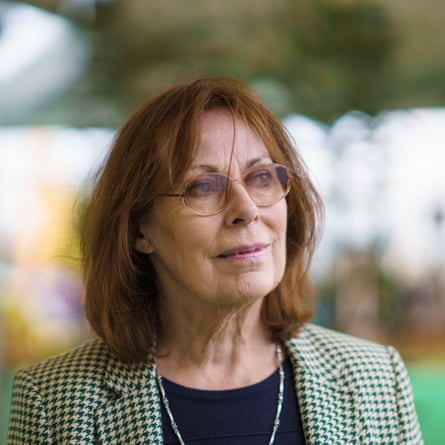
Choice by Neel Mukherjee
chosen by Rose Tremain, novelist
Mukherjee’s adroit new novel captures with disconcerting force the moral confusions that curdle the brains of those who have power in the world and those who have none. Are the directors of a money-obsessed publishing house more catastrophically at fault than an editor who – haunted by dystopian visions – lies to his partner, terrifies his kids with tales from a slaughterhouse and lets his sick dog be killed on a motorway? How evil – or not – are the neoliberal philanthropists who bestow a cow on a dirt-poor Indian family without being able to imagine the ruinous physical and financial burden such a gift could be? Mukherjee’s achievement in this book is not to offer answers to these desperate questions, but to guide us to think more deeply about them, and thus about our own moral choices.
Rose Tremain’sAbsolutely and Forever is published by Chatto.
The Wounded Cormorant by Liam O’Flaherty
chosen by Blindboy Boatclub, podcaster and author
In school we studied O’Flaherty’s short story The Sniper, a tense thriller about an IRA sniper during the Irishcivil war. Our teachers framed the story as a moralistic warning to young Irish boys about the dangers of physical force republicanism.
But it’s O’Flaherty’s nature writing that I find so vital now, 100 years after it was written, in the face of biodiversity collapse. The Wounded Cormorant is a story about a goat that knocks a rock off a cliff, and it lands on a cormorant’s leg. The cormorant tries to fly away from the pain, but her leg is smashed. She attempts to rejoin her flock; the birds turn away from her, frightened that her weakness will weaken the group. She is rejected and dies. O’Flaherty writes about systems of biodiversity as a studied, observant pagan meditation. He becomes the uncaring chaos of nature. He doesn’t anthropomorphise the animals. The reader is forced to clamber for humanity in his wildlife fiction. The natural world is treated with fear: something bigger than us, rather than a resource to be exploited.
Blindboy Boatclub’s Topographia Hibernica is published by Coronet.
Unstoppable Us: How Humans Took Over the World by Yuval Noah Harari
chosen by Jeff Kinney, children’s author
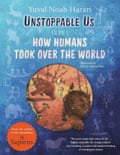
Harari did something remarkable with his breakout book, Sapiens: he made the topic of human anthropology feel urgent. Now he has started a series aimed at a younger set. The first volume lays out our species’ remarkable talent for creativity as well as our breathtakingly destructive tendencies. It’s the kind of stuff they don’t teach in schools and helps young people see Homo sapiens in an unvarnished way, which might just save us from ourselves.
Jeff Kinney’s The Diary of a Wimpy Kid series is published by Puffin.
Testament of Youth by Vera Brittain
chosen by Elizabeth Day, author
If everyone could read this extraordinarily powerful memoir, we would all have a far greater understanding of the human cost of war and, I hope, be less likely to repeat the same mistakes. Vera Brittain was 20 and on her way to Oxford University when the first world war broke out. Four years later, life as she knew it had been all but obliterated. Her fiance, her brother and her two dearest male friends were killed. Brittain herself served as a volunteer nurse at the Front. She is an impassioned, meticulous observer of events and emotions. Her work breaks your heart at the same time as it educates your mind and shapes your soul.
Elizabeth Day’s Friendaholic is published by 4th Estate.
Will You Please Be Quiet, Please? by Raymond Carver
chosen by Helen Garner, novelist
I came upon Carver’s short stories in the early 80s. They hit me a terrific blow. I had published two books by then, and didn’t know what I was doing or where I was going. I was thunderstruck by his demonstration of how little you need to have on a page, and how much power is waiting to declare itself in the events of ordinary domestic life. Years later I read a Hemingway story in which a woman who is about to have an abortion says to the man in her life, “Will you please please please please please stop talking.” The echo, the borrowing, the longing for silence. It’s a kind of humility.
Helen Garner’s The Children’s Bach is reissued by W&N.
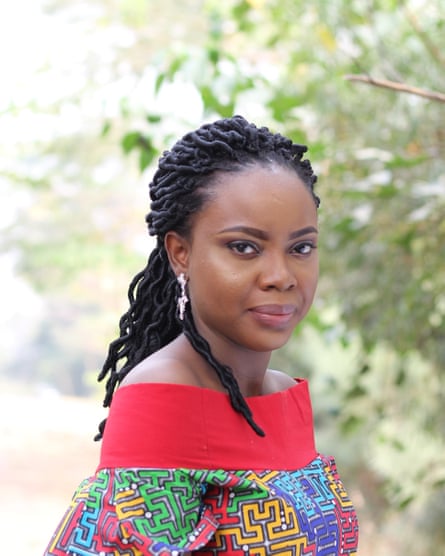
Allow Me to Introduce Myself by Onyi Nwabineli
chosen by Ayọ̀bámi Adébáyọ̀, novelist
In her sophomore novel, Nwabineli interrogates the consequences of living on social media through a family that has been splintered by “sharenting”. Anuri is famous but not by choice. Ophelia, her stepmother, has documented her childhood online and built an empire from the proceeds. The novel resists simply making Ophelia into a villain – instead it reveals the tenderness and complexities that bind this family together. It is a timely book that asks the reader to consider ethical questions about parenting in the internet age.
Ayọ̀bámi Adébáyọ̀’s A Spell of Good Things is published by Canongate.
The Histories by Herodotus
chosen by Tom Holland, historian
We live in an age shadowed by the challenges of globalisation, by great power rivalries, by bitter debates over gender, sexuality and race. This being so, it may strike some readers as perverse of me to recommend a history that has been cast by many as a fountainhead of western chauvinism: Herodotus’s epic account of how the Greeks came to defeat the Persian empire. Yet Herodotus, 2,500 years old though he may be, has much to teach us, for he was the very opposite of a chauvinist. His abiding quality is curiosity: curiosity about the infinite ways in which it is possible to be human. That people from different cultures are likely to have a whole variety of perspectives on the same episode, let alone on how best to order their lives, appeared to Herodotus so significant a truth that he chose always to rely on it. “Everyone believes their own customs to be by far and away the best,” he observes. To think otherwise is literally to be mad. Such was the conviction that inspired him always to attempt to see events through eyes other than his own: a novel project when he undertook it, and still a source of inspiration today.
Winnie-the-Pooh by AA Milne
chosen by Geri Halliwell-Horner, singer and author
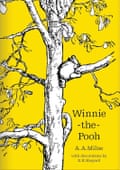
I spent days deliberating over this. Reading changed my life; it gave me the words I couldn’t find. But a book that speaks to the whole world, without judgment. One that recognises your family and friends. One that shows the world we live in, truly, with hope, wonder and tragedy. What book is worthy of such a recommendation? After much reflection, at 4am, I came up with my answer. The world doesn’t always need change, it just needs to remember. A reminder of who we are, innately, can be found back in the Hundred Acre Wood. I find myself there, where it started, with Winnie-the-Pooh. “You’re braver than you believe, stronger that you seem, and smarter than you think.”
Tom Holland’s Pax is published by Abacus.
All Quiet on the Western Front by Erich Maria Remarque
chosen by Chigozie Obioma, novelist
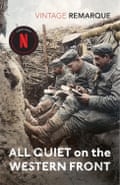
War has moulded our world. But what does the experience feel like for the frontline soldier who survives one? As with most experiences, fiction is often the best place to chronicle it. All Quiet on the Western Front, published in 1928, shaped how we look at those who suffer through the grind of war, and what it means to survive. During research for my novel about the Biafran war of independence (1967-70), I was moved when a veteran told me he carried a dog-eared copy for much of the war, until he lost it during an ambush. That a work of fiction about a German soldier’s experience could give courage to a Biafran soldier half a century later is testament to the world-changing power of this novel.
Chigozie Obioma’s The Road to the Country is published by Hutchinson Heinemann.
Critique of Pure Reason by Immanuel Kant
chosen by AC Grayling, philosopher
How hard it is to pick out a single book, when reading as a whole is life-building. For academics, the books in their special fields will be unlikely candidates for bedtime reading, but I’d nominate Immanuel Kant’s Critique of Pure Reason. It comes closest to being right in principle, though not in detail, to the way minds construct worlds; cognitive and neuropsychology have caught up with him in that respect.
AC Grayling’s Philosophy and Life is published by Penguin.
Hay festival runs from 23 May to 2 June. The site is free to enter with events ticketed individually: hayfestival.org/hay-on-wye
Source: theguardian.com
